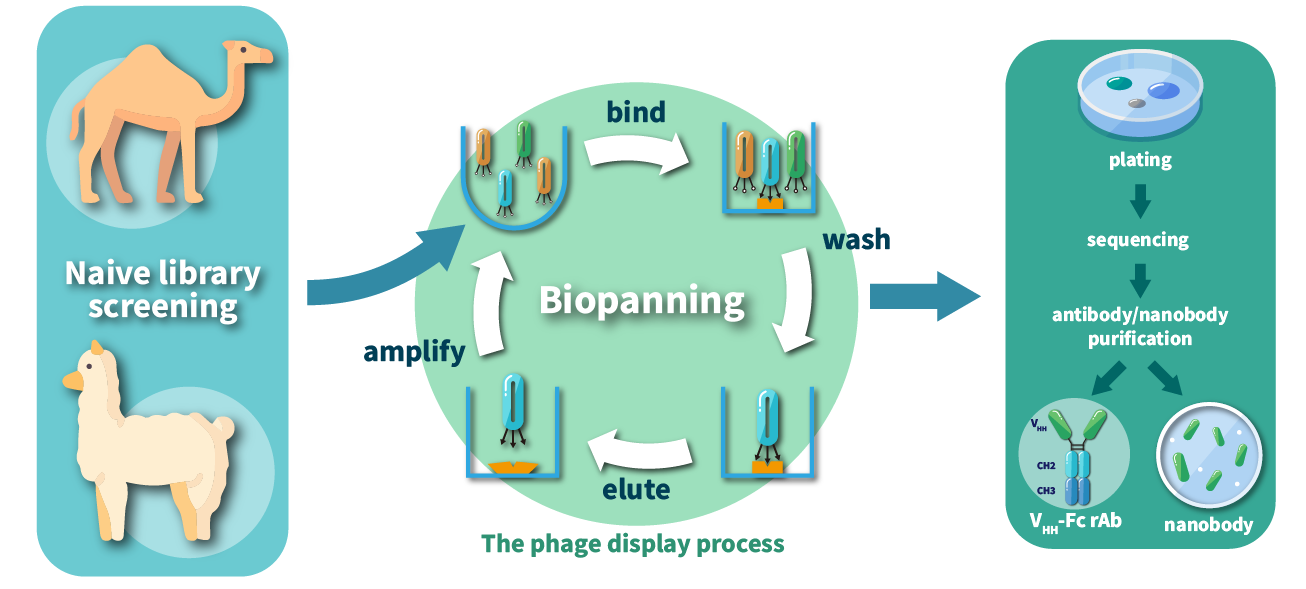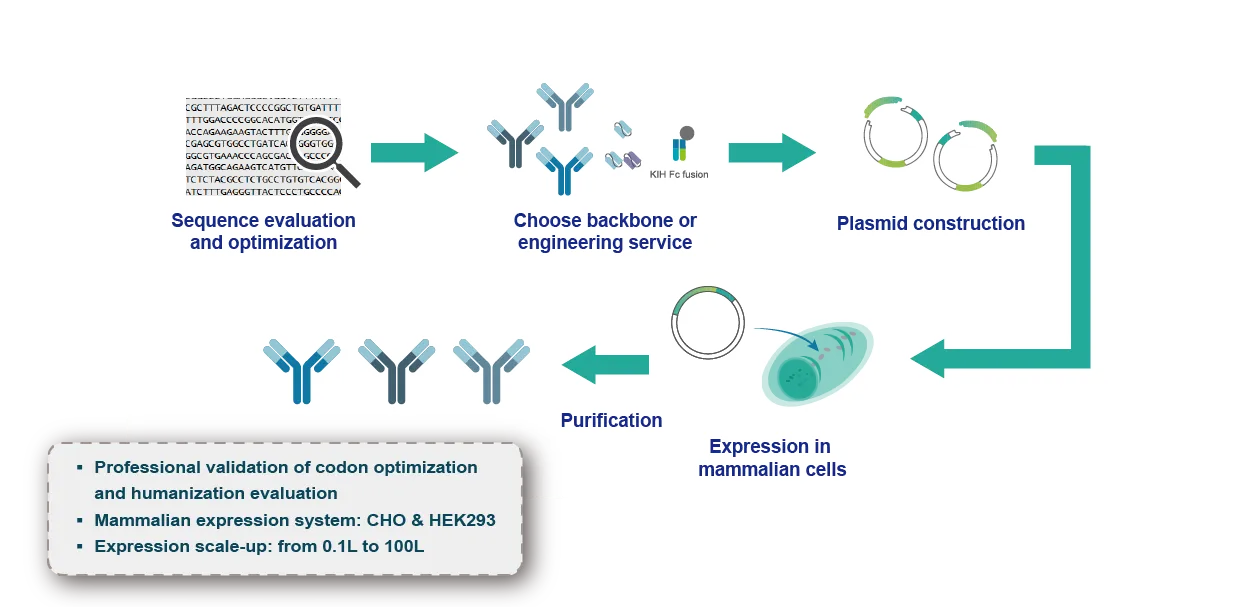|
Nanobodies: Where Small Size Meets High Potency |

Nanobodies, also known as single-domain antibodies (sdAbs), are a unique class of antibody fragments that consist of a single monomeric variable antibody domain. Unlike conventional antibodies, which are composed of two heavy chains and two light chains, nanobodies are much smaller, with a molecular weight of only 12-15 kDa. They were first engineered from heavy-chain antibodies found in camelids, known as VHH fragments, and can also be derived from cartilaginous fishes’ heavy-chain antibodies, called VNAR fragments.
These nanobodies are capable of selectively binding to specific antigens, similar to whole antibodies. Their small size and single-domain structure make them easier to produce in bacterial cells for research and pharmaceutical applications. Nanobodies have been shown to be just as specific as conventional antibodies and, in some cases, more robust. They are also more heat-resistant and stable towards detergents and high concentrations of urea, making them ideal for various applications, including the treatment of diseases such as acute coronary syndrome, cancer, Alzheimer’s disease, and COVID-19.
|
Advantages Over Conventional Antibodies |
- Size and Penetration: Due to their small size, nanobodies can penetrate tissues more effectively than conventional antibodies. This allows for better targeting of cancer cells and other pathological tissues, enhancing the efficacy of therapeutic and diagnostic applications.
- Stability and Solubility: Nanobodies exhibit remarkable thermal stability and solubility. They remain functional in extreme conditions where traditional antibodies might denature or aggregate. This property is particularly beneficial for pharmaceutical storage and transport.
- High Affinity and Specificity: Despite their small size, nanobodies can bind to their targets with high affinity and specificity. This makes them ideal for precise targeting in therapeutic applications, reducing the likelihood of off-target effects.
- Ease of Modification: Nanobodies can be easily engineered and modified for various applications. This includes creating multivalent or multispecific constructs, which can bind to multiple targets simultaneously, offering a more comprehensive approach to treatment.
- Production Efficiency: The production of nanobodies is generally more cost-effective and faster than traditional antibodies. Their bacterial or yeast expression systems allow for high-yield and scalable production, which is crucial for commercial and clinical applications.
- Reduced Immunogenicity: Nanobodies, due to their minimalistic structure, are less likely to elicit an immune response in the human body compared to full-sized antibodies. This reduces the risk of adverse reactions in therapeutic use.

- Key Service Features:
• Boost immunization success for low-immunogenic and small molecular antigens
• High-specificity camel and alpaca antibody libraries
• Antibodies with compact size and superior stability
• Exceptional affinity and specificity
• Rapid experimental issue resolution by our expert team
• Customized antibody preparation solutions
• Immunization platform development services
• Comprehensive antibody pairing service
• Streamlined one-stop consultation
-
Workflow:
• Phage display library biopanning and screening
• Positive clone sequencing
• Nanobody expression & purification
• Affinity analysis (Biacore) (optional) -
Sample requirements:
Antigen protein/peptide (≥ 500 μg) -
Deliverables:
• Purified antibody
• Nanobody sequence (5-10 clones)
• Test report (antibodies validation by ELISA)
• Biacore affinity analysis report (optional)
| Related Services: |
